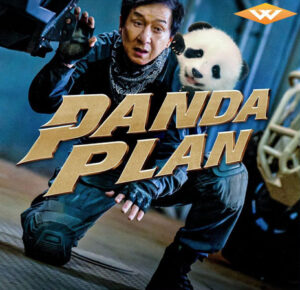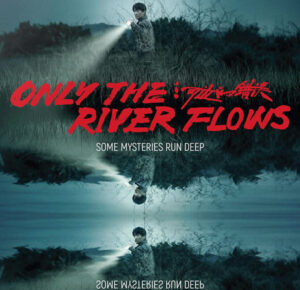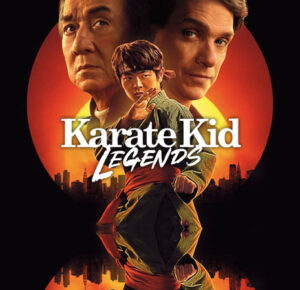Director: Shinichiro Sawai
Cast: Takashi Sorimachi, Rei Kikukawa, Mayumi Wakamura, Ken’ichi Matsuyama, Yoshihiko Hakamada, Eugene Nomura, Go Ara, Takahiro Araki, Kachiwo Endo, Yusuke Hirayama, Naoki Hosaka, Sosuke Ikematsu
Running Time: 136 min.
By Kelly Warner
Thirty minutes into Genghis Khan: To the Ends of the Earth and Sea I came to realize that I was not watching a historical epic. Instead, this movie is a biopic about a man who lived a historically epic life. And all in all, that’s not such a bad thing. We’ve seen plenty of historical epics over the years, and we’ve seen a couple about Khan, so maybe a different approach to the subject should be welcomed. The film’s shortcomings as a historical epic could be forgiven… except that it’s not a very good biopic either.
So often I found myself trying to reason with the movie. I’m not asking for much, oh great Khan, just give me something to make the next two hours feel like they are worth my time. Thing is, I don’t think Genghis Khan cares much for the audience. The film plays out like a history lesson that’s being told by a professor who’d rather be anywhere else but here. There’s a distinct feeling of disinterest to the production.
Genghis Khan: To the Ends of the Earth and Sea (AKA The Blue Wolf: To the Ends of the Earth and Sea) is a Japanese/Mongolian co-production. Though filmed on location in Mongolia and featuring thousands of Mongolian extras, the primary cast and crew is made up of Japanese talent and Japanese is the spoken language. The film tells the life story of Genghis Khan from birth to old age. We see him grow into a warrior, take on his rivals and deal with betrayal, and eventually try to unite the Mongols against China. (I cannot claim to know enough about Genghis Khan to tell you with any authority whether the movie is more fact or fiction, but it often feels overly dramatized.)
One of the first rules that any aspiring screenwriter is taught is to never use voiceover to narrate their story. Like most writing tips, there are a whole lot of ‘buts’ to this rule. It’s hard to imagine Fight Club, Fear and Loathing in Las Vegas, and Taxi Driver (among others) without their voiceover narration, which serves to elevate the films. However, too often voiceover is used as a crutch for bad writing. Instead of taking the weight off the story and letting things operate more smoothly, the crutch only brings more attention to the weaknesses of your screenplay. Such is the case here. Genghis Khan’s mother narrates much of the film. It would’ve been much better without this added component. At one point she tells the audience how her son gave no mercy to traitors… just minutes after Khan kills a traitor without mercy. Thanks, Mom. There’s even a moment where we see two armies ready for battle, and then the narration tells us that the battle lasted for days but things worked out in the end. Umm, I personally would rather see the battle instead of just being given the summary afterwards. Whatever.
I thought at first that maybe the movie wasn’t going to be too bad. It didn’t bring anything new to the table — almost every scene had been done better in other movies — but at least the story had some kind of flow to it. However, it quickly became apparent that not only was it repeating material seen in other similar films, but it was repeating scenes from earlier in this film. There’s an awful feeling of sameness to the movie as we move into the second half. Director Shinichiro Sawai wisely sets much of the film in the outdoors on Mongolia’s green hills, but he never manages to do much with the location. It’s a beautiful place, but everything begins to look the same after a while, and no images really grab you. In addition to a boring visual style, the drama often feels like it is on repeat. Even though the confrontations and the dialogue changes, every scene unfolds more or less the same. The characters speak overly dramatic dialogue, turn their back on each other, say something else, and then continue staring off into nothingness. It’s boring staging and terribly repetitive. Stepping into the role of Genghis Khan is Takashi Sorimachi (Fulltime Killer). Sadly, like much the rest of the cast, I can’t say many good things about Sorimachi’s performance here. Everyone is overacting. I don’t put too much blame on the actors, though, as I feel this is something the director should’ve tempered. Sorimachi, like basically everybody else in the cast (which includes Gantz’s Kenichi Matsuyama and Godzilla: Final Wars’ Rie Kikukawa), has been much better in other films.
After all the dull character drama, it comes as a relief when we finally get to a big action sequence. However, things don’t really get much better here. There are a lot of men and horses on screen, but the action is aimless, the music doesn’t fit, and the film features some of the most violent, relentless horse tripping I’ve ever seen. The action is so poorly staged and uninvolving that I was more than ready to get back to the tents for more moody dialogue-heavy scenes.
There’s a decent film in here somewhere, I think. Genghis Khan: To the Ends of the Earth and Sea obviously wasn’t a cheap production. The thousands of extras, the armor and weapons, a half-way decent cast, and a legendary character should’ve created a better film than the one we got. Actually, if you step back and strip away the individual scenes, you come away with a decent story. It’s a film about a warrior who became a legend… and though he was good to his people, he was often cruel to his family. In the film’s most striking scene we see a young Genghis murder his own brother because he refused to fall in line. Later in the film, when Genghis is old, he repeatedly sends his bastard son into dangerous lands, and we can only assume it’s because he hopes the boy will not return. However, when you consider the dull dialogue, the repetitive staging, and the formless action, you come away with a film that’s uninteresting and feels four hours long.
If you’re looking for a good film about Genghis Khan, my advice is to check out Sergey Bodrov’s Mongol and leave Genghis Khan: To the Ends of the Earth and Sea on the shelf.
Kelly Warner’s Rating: 3.5/10

























5 Comments